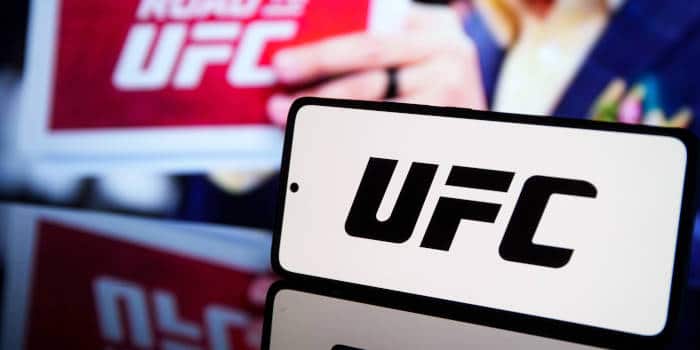- Casino
- By State
- Alabama
- Alaska
- Arizona
- Arkansas
- California
- Colorado
- Connecticut
- Delaware
- Georgia
- Florida
- Hawaii
- Idaho
- Illinois
- Indiana
- Iowa
- Kansas
- Kentucky
- Louisiana
- Maine
- Massachusetts
- Maryland
- Michigan
- Minnesota
- Mississippi
- Missouri
- Montana
- Nebraska
- Nevada
- New Hampshire
- New Jersey
- New Mexico
- New York
- North Carolina
- North Dakota
- Ohio
- Oklahoma
- Oregon
- Pennsylvania
- Rhode Island
- South Carolina
- South Dakota
- Tennessee
- Texas
- Utah
- Vermont
- Virginia
- Washington
- West Virginia
- Wisconsin
- Wyoming
- By State
- Slots
- Poker
- Sports
- Esports
PASPA Repeal: Five Observations of the Market Evolution
The article that follows has been contributed by Justin Stempeck, Chief Regulatory Officer, Compliable.

Since PASPA was repealed on May 14 2018, sports betting has been legalised in more than 30 states and iGaming in six, with the industry now firmly establishing itself in the US. The evolution of the sector over the last five years has been exhilarating as the market takes shape across numerous states. We spoke with Compliable’s Chief Regulatory Officer, Justin Stempeck, about five observations since the fall of PASPA.
Changing Attitude of Sports Leagues
For decades, major sports leagues such as the NBA and NFL pushed back against sports betting, arguing that legalising it would be a threat to the game’s integrity. The leagues were some of the most vocal critics, lobbying hard against regulation. Since the PASPA repeal, the leagues have had to work alongside the industry and we have seen them softening their stance to where they now view legal betting as a way to better protect the sports and to generate additional sponsorship revenue for teams.
Before legalisation, betting was taking place underground with no supervision from state regulators and no safeguards in place. It is now widely accepted that the integrity of sports is better protected today as all parties are acutely aware that any scandal could have a major impact on the whole ecosystem.
Slow Rollout of iGaming
With only six states currently allowing iGaming and few considering legalising it, the answer as to why the rollout of the vertical has been a lot slower than sports betting is difficult to pinpoint. There is a sense that legislators believe that online and mobile sports betting is less dangerous compared with players having access to a full casino on their phone. In the US, casinos are so strongly associated with Las Vegas, also called Sin City, and this could be another factor as to why the vertical hasn’t taken off.
Online sports betting has been at the centre of the US gambling industry over the past five years, and we have grown accustomed to the conversation and been educated on the sector. Once the momentum behind legalization of sports betting slows considerably, I suspect the voices behind the rollout of iGaming will grow louder and we could see this being considered more.
Slow Implementation of Responsible Gaming Measures
There is no question that Responsible Gaming (RG) is the most important issue for the industry since PASPA was repealed. Failure to seriously address RG has the potential to destroy the reputation of operators and do irreparable damage to an industry which is just starting to mature. Fortunately, a number of regulators including New Jersey, Ohio and Massachusetts have taken a strong stance on regulating RG protection in the online ecosystem and hopefully their approach will spread.
Domination by Small Number of Major Players
I initially predicted that numerous operators would compete in the sports betting space and have been somewhat surprised to see the domination of FanDuel, DraftKings, and to some extent BetMGM, leaving the rest fighting for scraps. Many smaller operators have had to fold as they simply cannot compete with the marketing budgets of the giants, creating a real David and Goliath story.
The fact of the matter is that the likes of FanDuel will own around 70% of a state market, and at some point, that creates regulatory concerns too and we have to ask ourselves if we have a viable choice for consumers. In the early days of opening the floodgates, 20 to 30 operators were all competing and today, there are only a handful of options and this will get further reduced.
Lack of Product Innovation
The sports betting offering in Europe, especially the UK, is extremely vast and advanced and we are yet to see this range of products and options offered by operators in the US.
Micro-betting is on the rise and this is a very attractive proposition, offering bettors greater choice and faster outcomes, ensuring they stay more engaged throughout the game. Before sports betting, we had daily fantasy sports with the results revealed at end of the day, and compared with this, micro-betting is instant.
Some RG concerns have been raised around this product as it’s fast and offers instant rewards, yet I expect we will see a lot more innovation in the space of sports betting to ensure players have more options and remain engaged and interested in the vertical.
Related Topics:
Mike made his mark on the industry at a young age, consulting for companies that would later become regulators. As one of the lead editor of Gambling News, he dedicates his weekdays to this project, aiming to educate the masses on the latest developments in the gambling circuit. His expertise and passion for the industry make him an invaluable asset to our team.
Must Read
Insider
May 15, 2025
Joshua Gamble: “Cross-sell is dead. What next?”
More Articles





Casino
July 11, 2025
IGT Reveals Multiple Jackpots Throughout June

Sports
July 11, 2025
DraftKings to Give Back Over $3M to Connecticut Users

Casino
July 11, 2025
Caesars Introduces Digital Wallet in Nevada

Sports
July 10, 2025
NJ Bans Sportsbook Deals With Public Colleges













